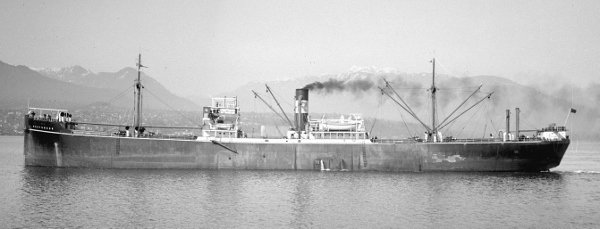Refueler
Well-Known Member
Quote :
“The end was anticlimax. We slipped home unnoticed. Britain turned no hair at our arrival, as just as she has turned no hair at our extinction.”
When Richard Woodman published Voyage East in 1988, he knew that the mercantile world depicted within it, which he had joined aged 16, was gone.
The first-person novel – which never reads like fiction – describes the voyage of a cargo liner carrying goods and passengers from Liverpool to Singapore, Hong Kong, Kobe and Shanghai in the mid-1960s. There is a moment, off the coast of Borneo, when the captain sees a vessel with half a dozen grey aluminium boxes on her foredeck: “What the devil are they?” he asks the pilot. “‘They’re containers, Captain,’ the Pilot replied, and no one on the bridge heard the sentence of death pronounced upon us.”
Woodman, who has died aged 80, became the memorialist of the merchant fleets. Between 2008 and 2016 he wrote the history of the British merchant navy in five volumes, followed by A Low Set of Blackguards, a two-volume history (2016-17) of the East India Company.
His outstanding contribution came through his three second world war convoy histories: Arctic Convoys (1994), Malta Convoys (2000) and The Real Cruel Sea (2005). These are works of passion, based on experience and scrupulous research.
The loss of life among merchant seamen was proportionately greater than in any of the armed services and the recognition they received far less. From the beginning of the war a seafarer’s pay was stopped the minute his ship was sunk. “Time spent fighting for his life on a float or lifeboat was an unpaid excursion,” wrote Woodman.
While Winston Churchill acknowledged the crucial importance of the Battle of the Atlantic to national survival, it was not until 2012 that those who had served in the Arctic convoys, and had taken the highest casualties of all, were retrospectively honoured.
“The end was anticlimax. We slipped home unnoticed. Britain turned no hair at our arrival, as just as she has turned no hair at our extinction.”
When Richard Woodman published Voyage East in 1988, he knew that the mercantile world depicted within it, which he had joined aged 16, was gone.
The first-person novel – which never reads like fiction – describes the voyage of a cargo liner carrying goods and passengers from Liverpool to Singapore, Hong Kong, Kobe and Shanghai in the mid-1960s. There is a moment, off the coast of Borneo, when the captain sees a vessel with half a dozen grey aluminium boxes on her foredeck: “What the devil are they?” he asks the pilot. “‘They’re containers, Captain,’ the Pilot replied, and no one on the bridge heard the sentence of death pronounced upon us.”
Woodman, who has died aged 80, became the memorialist of the merchant fleets. Between 2008 and 2016 he wrote the history of the British merchant navy in five volumes, followed by A Low Set of Blackguards, a two-volume history (2016-17) of the East India Company.
His outstanding contribution came through his three second world war convoy histories: Arctic Convoys (1994), Malta Convoys (2000) and The Real Cruel Sea (2005). These are works of passion, based on experience and scrupulous research.
The loss of life among merchant seamen was proportionately greater than in any of the armed services and the recognition they received far less. From the beginning of the war a seafarer’s pay was stopped the minute his ship was sunk. “Time spent fighting for his life on a float or lifeboat was an unpaid excursion,” wrote Woodman.
While Winston Churchill acknowledged the crucial importance of the Battle of the Atlantic to national survival, it was not until 2012 that those who had served in the Arctic convoys, and had taken the highest casualties of all, were retrospectively honoured.

